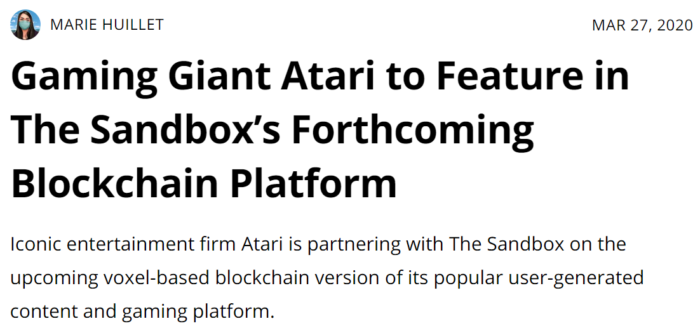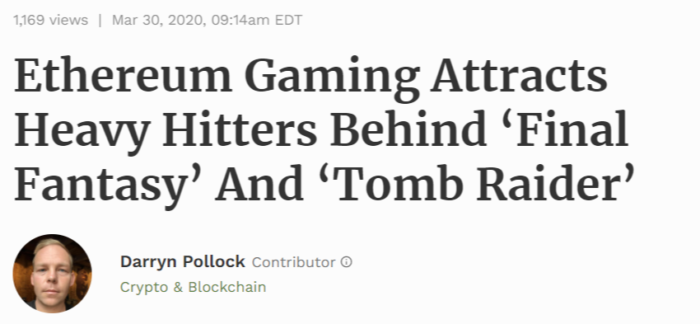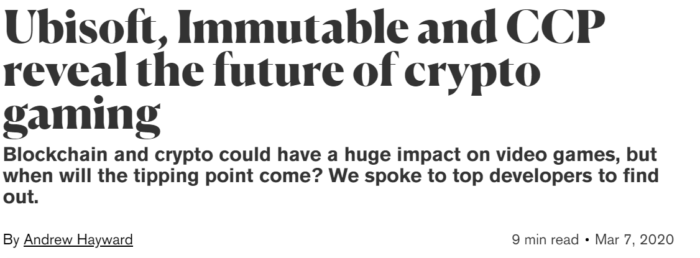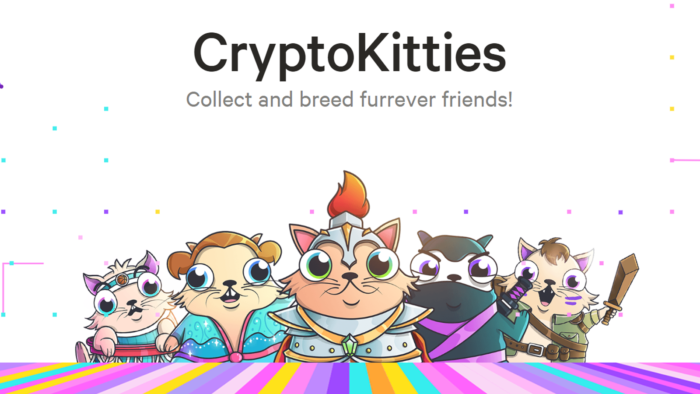With so much hype in regard to the development of the blockchain games, one could perceive that things must be going quite well.
But is it?
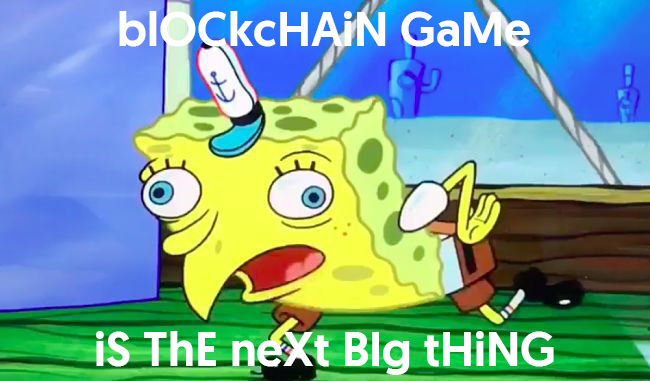
To answer this question, we must define what is a blockchain game and what makes it unique first.
Blockchain Game 101
In a strict definition, blockchain games refer to games that integrate blockchain technology to record players’ ownership of assets and trading activities.
The canonical example of a blockchain game should be CryptoKitties, a game that allows players to breed and trade digital kitties with each other.
There are 2 characteristics that set CryptoKitties apart from commonly-seen virtual pet games:
- players actually own the digital pets
- 3rd party developers can make applications with in-game items without permission
How does it achieve these things?
On CryptoKitties, each kitty is represented as a unique token on the Ethereum blockchain (this kind of token is known as “Non-fungible Token” or “NFT” in the crypto community) And on the Ethereum blockchain, each token or asset ‘lives’ inside a wallet and hence is controlled by the wallet owner. For that reason, kitties owners will still ‘own’ their virtual pets should Dapper Labs, the company behind CryptoKitties, go bankrupt.
As for 3rd party developers, thanks to the permissionless nature of the blockchain, they can build applications with in-game items freely without asking for permission from the game creator. For instance, KittyHats lets kitties owners on CryptoKitties to decorate their kitties by adding accessories on top of them and KittyRace allows owners to ‘force’ their digital pets to join a running competition and bet ETH on the game (please don’t call PETA for this!)
The opportunity doesn’t stop at making skins or DLCs for the original game.
RocketNFT enables kitties holders to put their digital pets as collateral for a loan denominated in DAI, a cryptocurrency soft-pegged to USD. Neither the creator of RocketNFT nor the applicants needs to ask for approval from Dapper Lab for their actions.
To this point, everyone should have a better understanding of what a blockchain game is along with what makes it special. In the following, we’ll go through the reasons why blockchain games will stay niche.
Reasons why Blockchain Games will Stay Niche
Mobile is (Most Likely) Not an Option
The obvious trend in the gaming industry is to go mobile, especially for the company such as Activision Blizzard who starts its business from PC games. As Bobby Kotick, CEO of Activision Blizzard, put it:
we’re going to continue to be deeply committed to the PC. But we do think there are opportunities for additional experiences in a different ways for players to engage on different kinds of devices. And we see Mobile is also a way to attract players that we don’t currently reach on PC and console. So we think the mobile opportunity for Blizzard overall is very substantial.
Bobby Kotick, CEO of Activision Blizzard, in 2019 Q4 Earning Call
This trend is problematic for blockchain game developers because the gatekeepers of the mobile game ie Google and Apple aren’t so friendly toward cryptocurrency-related applications. As we can recall from Coinbase Wallet being forced to remove DApp browser to abide by Apple’s guidelines and Samourai Wallet being forced to remove some of the functionalities due to Google’s policy as the tweet below shows:
What makes the situation worse is that Google and Apple are expanding their service-related revenues, which includes the commission from in-app purchases, as such they will be (or already are) stricter than before in the review process to check if an app tries to avoid paying transaction fees.
But why is that relevant to blockchain games?
Because for the most of time, blockchain games use cryptocurrencies as the medium of exchange inside the game, meaning that it’s not possible for the gatekeepers to get a cut from these transactions; Hence I believe blockcahin games will have a hard time passing the review process for mobile games.
(Technically speaking, gatekeepers could get a cut if they had implemented a smart contract on the blockchain to let developers to automatically distribute transaction fees to there, but I highly doubt they’ll do it in the foreseeable future)
By taking all of the things above into consideration, we can conclude that blockchain games in all likelihood will be limited to platforms besides mobile namely console, browser and PC.
Yet-to-be-proven Game Mechanics
One unique characteristic that any blockchain brings to blockchain games is tradability ie every in-game item is tradable. However, this unique characteristic also brings more uncertainties to the developers.
Like, what do you expect players will choose between directly spending 10 USD to buy an in-game item from another player and spending 10 USD on a loot box from the developer in hopes of getting that item?
Most of players will most likely choose the former since it greatly reduces the uncertainty plus the loot box or gotcha mechanics has already left a bad taste in players’ mouths. And what makes the matter worse is that the increasing popularity of a game will exacerbate this problem – as more users download the game, the more supply for each in-game item will there be on the market, which makes the official item shop or loot box less attractive to new players and that further reduces the revenue for the game developer.
As an example, just imagining what will happen if lives (or ‘hearts’) became tradable on Candy Crush?
We can probably see that as more users download the game and earn lives with their skills, some of them will want to sell their lives either because they want to monetize their skills or they want to outright leave the game. Either way, any one of these increases the supply of lives on the market. In response, the official lives shop needs to continuously reduce their prices or loses business.
Unfortunately, this vicious cycle on the price will continue until the price of hearts drops to close to zero because any price above zero is ‘profitable’ to players considering the market prices of items in the conventional games are zero ie you can’t trade them for any out-of-game currency at all.
Even though game developers can enforce a transaction fee on each trade to capture some of the value, I doubt the fees will be meaningful enough to make up for the ‘lost’ revenue.
Much Higher Maintence Cost
In spite of the aforementioned drawbacks, I still believe that there must be some ingenious in-game mechanics that can be implemented to mitigate the negative impact of the tradibility.
However, so far no game developer seems to be able to crack the code or we would have already seen some mainstream blockchain games. Thus, for those who want to develop blockchain games nowadays, they must spend more time exploring in-game mechanics which hopefully can negate the adverse impact than actually making the game attractive.
Even if a developer has figured out how to neutralize the downside, she still needs to familiarize herself with the tool used to develop blockchain games.
And unlike ordinary games, because of the nascency of the space, the support for blockchain on major game engines such as Unity and Unreal isn’t that good, to say the least. Consequently, game developers from time to time need to develop tools themselves or spend more exploring features than develop the actual game.
As we can see from Loom Network, one of the most famous blockchain games solution provider, it only has a SDK for Unity which hasn’t been updated for over 10 months. Not to mention that recently the company has pivoted from user-facing applications such as blockchain games to enterprise solutions due to recent leadership changes. If their business was booming then why would they want to change the direction of the business 😕
Last but not least, because there is only a small percentage of the population around the world having cryptocurrency wallets, game developers probably need to host wallets on their servers for their users if it’s a casual game. And in contrast to regular games, it costs money (or ‘gas’ on Ethereum) to transfer items between wallets. Luckily, blockchain game developers can charge a withdrawal fee for outward transfers ie transfer items from the wallet hosted on their server to the wallet owned by the user, which is commonly seen on centralized exchanges.
What are your thoughts?
Have you ever tried to play any blockchain game before?
Do you agree the reasons listed above?
Leave a comment and let’s discuss!

